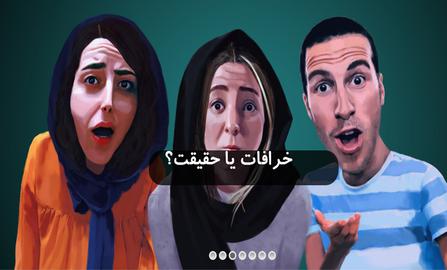Behnaz Shafiei, 26, not only loves to ride motorbikes in her home country of Iran - where it is illegal for women – it is also her only source of income. Through a combination of teaching, training and sponsorship, she makes her living through it. Her career is built around riding motorbikes.
It was only eight months ago that Behnaz stopped working as an accountant to pursue this dream job. “When I was an accountant, I missing riding motorbikes all the time, but when I’m biking, I never miss anything or anyone,” says Behnaz.
Even though it is technically illegal for women to possess a motorbike license, she was one of the first women in the country to get official permission from Iran’s Motorcycle and Automobile Federation to practice off-road.
Even though she remains the only Iranian girl to have done professional motorbiking, she is still not allowed to compete in official races.
Behnaz was first drawn to motorbikes as a child, and vividly remembers how in the past she would frequently ask people to give her a ride on their bikes. At that point, she never thought of riding herself. But things changed when she was 15-years old and went on holiday to a poor village in Zanjan Province. There she saw a young woman driving around on a motorbike. She asked the women to show her how to drive.
“It was then that I told myself that I could do the same, that I too could bike,” Behnaz recalls. “The woman didn’t actually teach me how to drive, she just said ‘here’s the gear and that’s the clutch’ and then I was off! I rode a bit, and I fell down a lot, but eventually I could do it.”
As her family could not afford to buy her a motorbike, she could only practice when she visited the village.
Then, four years ago, she could finally afford to buy one when she had been working for some time. At the beginning, she only rode in the countryside.
“Riding in cities is more difficult and I was scared at the beginning,” she explains. “But when I developed my skills, I started to go to the cities. I’d wear sportswear so nobody would know that I was a girl. ”
However, some people still noticed that she was female, which received mixed reactions. Some men were encouraging and said, “that’s great”, “don’t stop”, and asked whether she was “really a girl?” But there were others who chanted things like, “girls should be in the kitchen, not on motorbikes” or “you should ride a washing machine not a motorbike.”
Behnaz preferred practicing at nighttime when she could develop her skills in peace.
Banned from standard racetracks
Behnaz practices on what she calls “handmade” tracks as she is forbidden from riding on standard motorbike tracks in Iran. To do this, she needs a license that Iranian women are not entitled to. She says, “I’d love to practice on good tracks where there are ambulances and standard equipment, but we [females] are not allowed, so we have to practice places that are made by ourselves.”
Despite her attempts to convince Iran’s Motorcycle and Automobile Federation officials to let females ride the standard tracks, she has not had any luck. “Some officials are unwilling to help us and deliberately “sabotage” women,” she says.
Milan’s driving festival
Recently, Behnaz went to the “Women Rides” night festival in Milan, Italy. She was the only woman from Asia or the Middle East to go out of the 300 people who attended.
“Italy invited me and they paid for my trip, that’s why I could go,” says Behnaz. “It was a great experience. I almost cried because I could ride freely in the street. For the first time in 11 years, I could see the results of all my hard work.”
When she was in Italy, she tried getting a motorbike license there but was rejected because she needed to be an Italian resident and speak Italian to past the theory test.
Back in Iran, Behnaz lives with her brother and mother, both of whom have supported her. However, ever since she began riding professionally, her mother, like all parents, has grown worried of the risks. Behnaz, like other motorcyclists, has fallen down on a number of occasions, although this has she never stopped her from giving up on her dream of competing internationally.
“I can’t imagine living even one more day of my life without a motorbike now,” she says. “That’s why I’m going to one day open a motorbike club for women in Iran so other women can also enjoy it.”
This article was orignally published on December 28, 2015
Related articles:
visit the accountability section
In this section of Iran Wire, you can contact the officials and launch your campaign for various problems







































comments
Mansoureh and Behnaz - What a great article! Fantastic read on a confident woman kicking ass at a great sport :) Why do you think (some) men in Iran are so 'against' women riding? especially at a political level where they can actually affect you obtaining your license? As a female rider in Australia - I can 't even begin to imagine such restrictions being placed on my freedom based on gender - what can be done to combat such a sexist viewpoint on your own freedom to enjoy a sport and recreation you love? ... read more